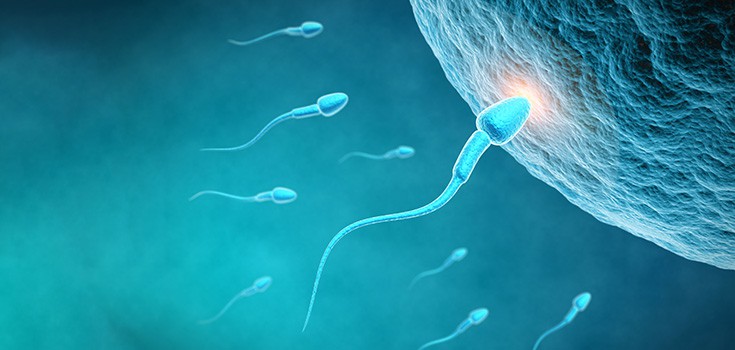3 Reasons the French Sperm Count Dropped by 1/3 in 17 Years

In a study involving over 26,600 French men, researchers concluded that average sperm count decreased by 32.2% in the past 17 years. We’re sad, but not surprised. In addition to the number of sperm dropping dramatically, the number of normally formed sperm also declined by a third.
University of Sheffield’s Dr. Allan Pacey, however, says the study “does not resolve the issue of whether or not sperm counts have declined or not. If we were to believe the data uncritically, we should put the changes into clinical context: the change in sperm concentration described 73.6 to 49.9 million per milliliter is still well within the normal range and above the lower threshold of concern used by doctors which is suggestive of male infertility (15 million per milliliter).”
The study authors insist in the journal Human Reproduction, however, “This constitutes a serious public health warning. The link with the environment particularly needs to be determined.”
Environmental factors, in fact, like the presence of endocrine-disrupting chemicals, are on our list of possible reasons the sperm count of the French, and Americans, has fallen.
1. BPA, Endocrine Disruptors
Ubiquitous chemicals like bisphenol-A (and its close cousin, bisphenol-S, which is found in abundance in BPA-free products) have linked to various reproductive difficulties and even anogenital distance in male infants (who later face 7 times the risk of being sub-fertile). Although BPA has been banned in baby bottles, the chemical is still heavily used in plastics, canned food, cosmetics, and more.
Dr. Joelle Le Moal from the Institut de Veille Sanitaire says, “Impairments in the quality of human gametes (male sperm and female eggs) can be considered as critical biomarkers of effects for environmental stresses, including endocrine disrupters. Firstly, this is because gametes are the very first cells from which human beings are built up during their lifetimes.
“According to the theories about the developmental origins of health and diseases, early exposures may have an impact on adult health.”
2. Bad Food
France maintains a ban on GMOs, but that doesn’t mean everything they eat is GMO-free. GMO technology and glyphosate (an ingredient in the herbicide Roundup, often found in residual traces on conventionally grown food) have been repeatedly linked with infertility. Eating junk food containing GMOs (and animals raised on GMOs) might therefore contribute to a lower sperm count.
3. Computers and Wi-Fi
Just 4 hours of using a Wi-Fi connected laptop leads to a dramatic drop in sperm quality. And according to a study published in the medical journal Fertility and Sterility, it only takes 10 to 15 minutes of laptop use to cause scrotal damage and impair fertility. This is true likely thanks to both the excessive heat of a laptop as well as the low-dose radiation from Wi-Fi. In fact, one couple conceived only after the male began using his laptop not on his lap but on a table or desk.
So what can be done to protect sperm health? Omega 3 fatty acids have been shown to positively affect sperm health, and
